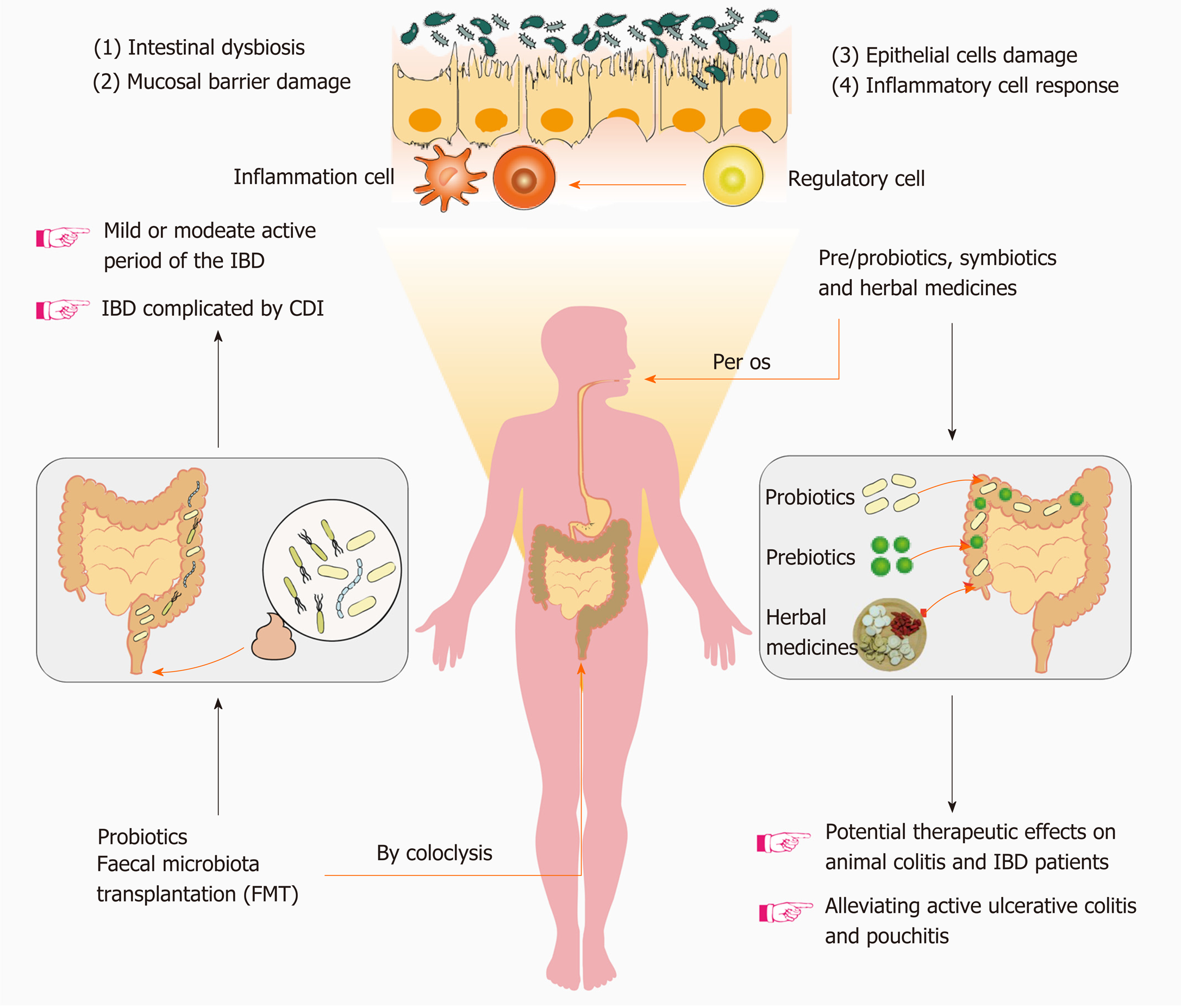Copyright
©The Author(s) 2020.
World J Gastroenterol. Aug 14, 2020; 26(30): 4378-4393
Published online Aug 14, 2020. doi: 10.3748/wjg.v26.i30.4378
Published online Aug 14, 2020. doi: 10.3748/wjg.v26.i30.4378
Figure 1 Regulation of intestinal microbiota as a therapeutic strategy for inflammatory bowel disease.
Microbe-based therapies for inflammatory bowel disease (IBD) can be divided into two categories, namely: Direct regulation of microbiota [probiotics and fecal bacteria transplantation (FMT)] and indirect regulation (prebiotics and herbal medicines). Intestinal dysbiosis, mucosal barrier damage, epithelial cell damage and inflammatory cell response often coexist in patients with IBD. However, FMT has now been used to test the treatment of mild or moderate active period of IBD as well as IBD patients complicated by Clostridium difficile infection. Pre/probiotics, symbiotics and herbal medicines display potential therapeutic effects in animal colitis as well as certain IBD patients, especially for active ulcerative colitis. Hence, it is necessary to screen and design personalized microbiota-based therapies in order to enhance the specificity and selectivity of the therapeutic strategy targeting intestinal microbiota. IBD: Inflammatory bowel disease; FMT: Fecal bacteria transplantation; CDI: Clostridium difficile infection.
- Citation: Yue B, Yu ZL, Lv C, Geng XL, Wang ZT, Dou W. Regulation of the intestinal microbiota: An emerging therapeutic strategy for inflammatory bowel disease. World J Gastroenterol 2020; 26(30): 4378-4393
- URL: https://www.wjgnet.com/1007-9327/full/v26/i30/4378.htm
- DOI: https://dx.doi.org/10.3748/wjg.v26.i30.4378









